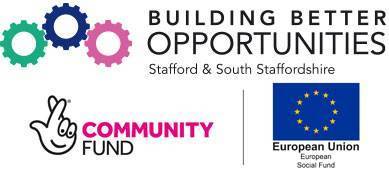How Social Media Affects Mental Health? Health & Wellbeing
Find Out How To Reduce Social Media’s Impact On Your Mental Health
Social media has brought along more opportunities to connect than ever before and inspired people to build relationships that may not have been possible before its introduction. However, like with anything, these sites like Instagram, Facebook and Twitter must be enjoyed in moderation. Becoming too reliant on them can have a harmful effect on your mental health. With the ability to worsen feelings of stress, anxiety and depression, it’s important to know how to recognise when social media is becoming a problem and how to combat it? Read ahead to find out.
Don’t Compare Yourself
Instagram, Facebook and Twitter are a great way to share positive things that are going on in your life with those that you care about. However, as a result it is often not an accurate representation of everyday life. People only share what they want you to see and so you should never compare your own life to what you’re seeing online. Furthermore, it’s easy when looking online to compare your appearance with who you follow. Don’t do this. Images online can often be edited and selected to suit the person uploading it. Everyone is different and comparisons with others online can lead to a reduction in your confidence and self esteem.
Hiding Behind Social Media
When you’re feeling down or overwhelmed, it’s often easier to bury your face in your phone than to open up to someone about how you’re feeling. It’s important to recognise when you’re doing this as if you’re already feeling anxious or stressed, speaking to people can be a great way to alleviate this. Read our guide on how to improve your mental health to find out more about dealing with negative feelings. By looking at social media each time that you feel this way, you are denying yourself an opportunity to open up and can therefore become more isolated. There can be ways to use social media to feel better though. Try and connect with someone that you can discuss how you’re feeling or organise to meet a friend.
Fear Of Missing Out (FOMO)
Social media can be a hub of activity and when you have countless followers or friends, it’s likely that one of them will be doing something exciting most days. It’s perfectly fine to take inspiration from their content for what you would like to do. However, you should cut yourself off when you start to feel like you’re missing out on what’s going on. A sign that you’re suffering from FOMO could be feeling an urgency to keep checking in on what people are doing. With messenger apps being very common, it can also be easy to feel FOMO if you’re being contacted and you can’t respond. This can become a problem when you feel the need to instantly message back and repeatedly check for a response. If you start to feel this way about social media, give yourself set times in the day to respond to messages and limit your screen time in your settings. If you still feel the desire to check at inconvenient times, try removing the most tempting apps for a week and see if you still miss them at the end of the week.
Cyberbullying
Unfortunately, when social media gave us a platform to connect with people, it also allowed bullying to travel online too. Cyberbullying can come in a variety of forms from direct messaging and comments to false rumours being spread. It’s important to report and block anyone who is cyberbullying and to tell someone that you trust like a parent, manager, HR representative or teacher when it is happening. They will be able to discuss it with you, and deal with the person responsible. Cyberbullying is all too common, especially for younger people and it’s important to recognise and report it to stop it before it gets more serious.
Spending Too Much Time Online
We’ve touched on this a little already when talking about FOMO but spending too much time on social media apps can quickly worsen your mood and prevent you from working through things that you’re going through. When you’re not feeling very positive, or you’re feeling overwhelmed, you may look to your phone for a quick distraction or an outlet of entertainment. This can be fine in small doses, but if you’re using it to completely avoid dealing with your feelings or a difficult conversation, it can cause your problem to resurface at a later date. This can lead to a vicious circle of you feeling more isolated, overwhelmed and reliant on social media.
Hopefully, this guide has helped you to recognise where social media may be impacting on your mental health. However, if you still have any questions, feel free to contact us. We also have other helpful guides that may be of use if you are having feelings of anxiety at work. Here at Building Better Opportunities, we offer a wide range of training courses and events that can help you deal with experiencing changes in your mental health. For more information, you can also visit one of our Work Clubs in Stafford or South Staffordshire to discuss our programmes with an Advocate.
